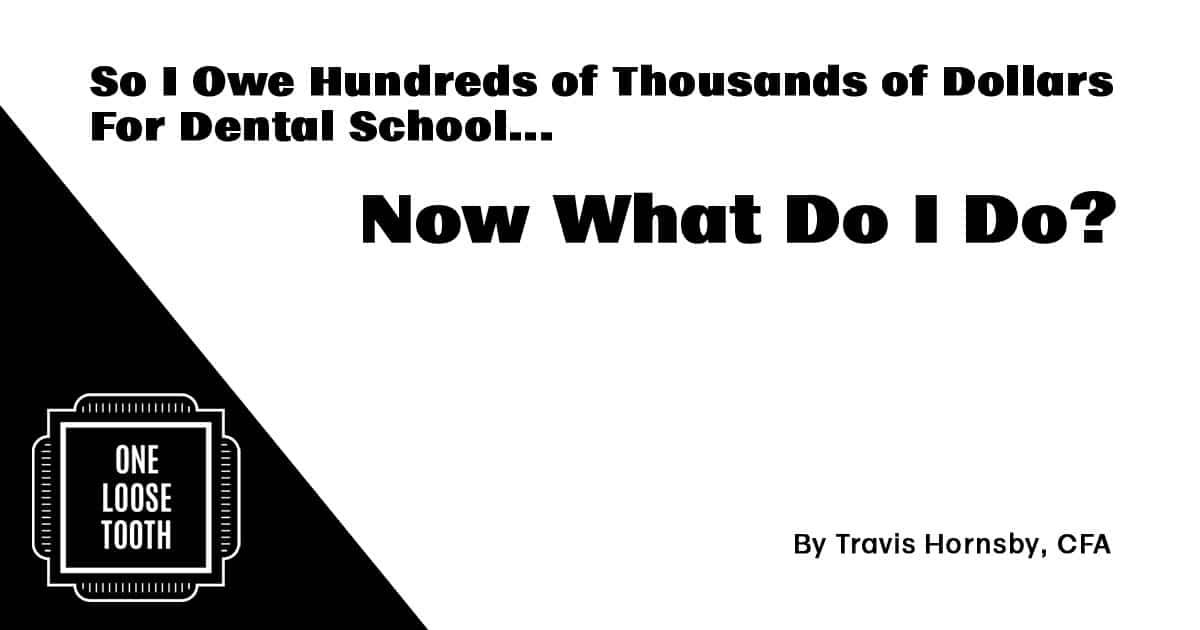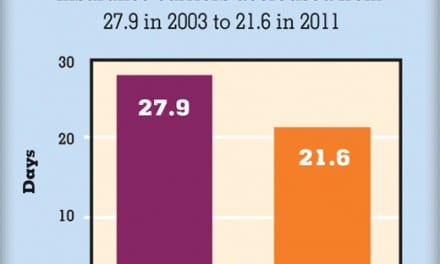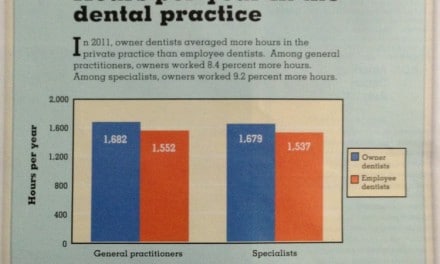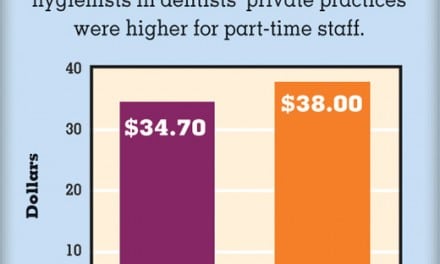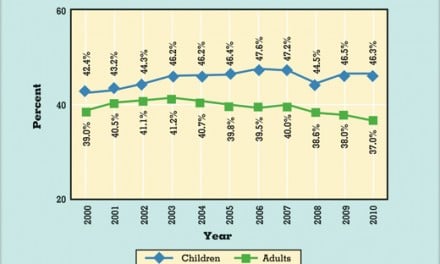[Editor’s Note:Â This is a guest post by Travis Hornsby. Travis Hornsby is the owner of Student Loan Planner. Travis offers a fee only analysis of student loans with a focus on helping high income professionals like dentists develop a plan to tackle their student debt.
This publication is not a testimonial or endorsement of the services offer by Travis at StudentLoanPlanner.com. I have not hired Travis to analyze my own portfolio, nor have I worked with him in any capacity beyond this publication.Â
With that said, I reached out and asked Travis publish a guest post on my blog (he did not contact me). Travis is active on both Dental Town and Student Doctor Network (SDN). Several of his publications on both of these forums have caused quite a stir and a few have resonated with me.Â
Earlier this month, I asked Travis to share some insights with my readers; below is his guest post.]
I’ve helped over 70 dentists come up with a plan to repay their dental school loans. I’ve seen their incomes, how they transition into practice, how some remain associates, and how loans have burdened their families.
I’ve got good news though. There is a positive path forward for optimizing the return on your education no matter how much you owe. However, it starts with creating realistic expectations for the economics of dentistry. Then, decide what kind of life and income you want and what you’re willing to sacrifice to get there. Finally, incorporate these goals into your student loan plan and get ready to work.
What Will You Earn Your First Few Years Out of Dental School?
The typical average starting salary that I see in my student loan consulting practice is $120,000 for new grads. Most people take an associate job. Often, they start off at a DSO doing corporate dentistry and speeding up their clinical skill. Some join a more experienced doctor with the potential of partnering down the line. Occasionally, I see a few folks that buy a practice almost right away, but that’s definitely not the norm.
Either way here’s the truth: your location will primarily determine your income. If you’re an associate in Texas and get paid 30% of production in a busy office, you’ll probably make closer to $200,000. If you take a job at a DSO in the DC suburbs, you’re going to be working weekends and probably make something around $110,000.
How do you deal with crushing dental school debt with that salary? More on that later.
The thing I want folks to realize is that you have to drastically reduce your expectations. Dentistry is no longer the “work four days a week and drive a Porsche†profession it once was. That was back in the days before PPOs dominated and when dental school cost $10,000 a year.
You’re not a rich dentist. Don’t buy a house unless it’s no more than 1 times your combined income. Otherwise just rent. Be frugal and drive an old car with 100,000 miles on it. That’s the kind of attitude that will help you free yourself from debt. Paradoxically, having an aggressive budget will also allow you to have the lifestyle you want down the line.
Go for Practice Ownership Within 2 Years
The only way you can make dentistry a worthwhile investment is to own a practice. How do you do that with $300,000-$400,000 in dental school debt? The good news is that the banks don’t care about your student loans. They know that you can pay student loans based on your income, and very few of them will be unwilling to lend you 100% of the practice purchase price. Dental practice loans have an absurdly low default rate, so even a highly indebted young dentist will probably have a lot of options in financing a practice.
The only holdup I see is that some banks want to see you have a history of producing at a level close to the practice you want to buy. That means if you want to buy a $1 million practice, they’re going to want to see something close to that level of production while you were an associate. If your production is lower, they might approve you for a more modest amount. Shop around and talk to a lot of banks because you’ll be surprised how easy it is to borrow for a practice.
What I would suggest is to build liquidity in your 1-2 years as an associate. Get $20,000 in the bank and max your retirement account even though you have gobs of debt from school. Talk to dental practice brokers in an area where you want to live. Make it a goal to follow practice listings and know how much they are selling for.
Also, realize that you’re going to want to find a practice 2 hours or more from a major airport. I’ve seen dentists fresh out of school working 200 miles away from a major metro area making $350,000 in net income. I’ve also seen struggling dentists practicing in big cities with low population to dentist ratios.
The importance of the location where you choose to practice dentistry cannot be understated. Northern Virginia, North Jersey, NYC, SF, and Miami Beach don’t have a dentist shortage and pay will reflect that. In contrast, Iowa, Oklahoma, Nevada, and other states desperately need them. Some even offer loan forgiveness to dentists who move there.
Find a practice that produces at least $600,000, but preferably it would be even larger. If you can qualify for a $800,000 to $1.2 million practice and the purchase price makes sense, then that’s probably the optimal option.
How do You Manage Your Student Debt in the First Few Years Out?
This is what Student Loan Planner helps new dentists answer. We do everything possible to save dentists thousands of dollars on their student debt. The strategy depends on the individual, but I’ll give you my best tips for the average recent grad.
First is to take advantage of the interest subsidies available on the Revised Pay As You Earn program (REPAYE). If your goal is to repay your debt one day, you want it to grow as slow as possible while you’re building up your safety net to get ready for practice ownership.
For the first couple years while you’re an associate, I suggest optimizing your loans for the REPAYE program. That means maxing out your 401k and your Health Savings Account. You’ll get more in interest subsidies this way. Additionally, this strategy minimizes required payments while you focus on the number 1 goal you should have, which is to go into practice ownership ASAP.
Once you get the practice loan and start earning a decent net income, then you can decide if it’s worth it to pay down your debt aggressively. If you’re coming out of an expensive private school with over $400,000 in dental school debt, it’s tough to stomach paying it back. If you’re below $400,000, then you should consider refinancing with a private lender. I’ve helped many dentists save thousands of dollars in interest once they finally have a high income and are ready to start paying a lot towards their debt. I helped a specialist last week cut his interest rate from around 6.5% down to 2.5%. He’s going to pay a lot each month and be completely debt free in five years.
The other way to look at student debt is through the debt to income ratio. If you owe more than 2 times your income even as a high-income practice owner, you probably need to use income driven repayment. You’ll save in a side account to pay taxes on the forgiven balance in 20-25 years. As you may or may not know, private sector loan forgiveness is taxable. Hence, you need to be putting money away for this six figure tax bill decades in the future.
If you owe less than 2 times your salary, it’s all about how much you’re willing to sacrifice to live the life you want in the future. If you can afford it, I suggest a 5-year variable rate with super high payments. That way, you’ll be debt free early in life. If you have no practice or student debt, you can finally live the stereotypical dentist lifestyle of a nice house and newer car with exotic vacations and still have some money left over. Or if you’d rather, you could invest a lot of the excess cash in income producing assets and possibly become financially independent.
Other Routes for Dealing with Dental School Debt
Yes, there are some other paths to covering the cost of dental school. You might get a HPSP scholarship with the military. They’ll cover most or all the cost of dental school in exchange for a few years of commitment.
You can also go work at a Federally Qualified Health Center (FQHC). Often, these facilities will offer loan forgiveness benefits. They’ll also qualify for Public Service Loan Forgiveness, which is the best backdoor scholarship program in the country’s history. The unfortunate part is that not a ton of dentists qualify for it.
Imagine This: $400,000 in Net Income with No Debt Ten Years After Dental School
This is ideally where I want all my student loan planning clients to be at 10 years after dental school. If you buy a decently large practice (>$800,000 revenue) in an area with attractive dental economics, this is totally possible. You need to own your own practice, live modestly, work hard, treat your practice like the small business it is, and make smart investments to help grow that business.
Once you’re earning at least $200,000 in net income a few years out, hopefully we’d be able to get you a better interest rate and you’d supercharge your debt payments. Since most practice loans have a term of 10 years or less, being debt free within a decade is totally possible.
For the folks who’ve got $500,000 or more in dental school debt, there’s plenty you can do to save money too. You’ll set up aggressive pre-tax contribution strategies to minimize income and save for tax penalties for student loan forgiveness. There is a point where making the best use of programs like REPAYE makes the most sense instead of directly paying debt back.
What’s the least economically viable path in dentistry? Working long term for somebody else. If you’re an associate with more than $300,000 of dental school debt, you’re never going to make your education worthwhile financially if you don’t make the jump to practice ownership.
[Editor’s Note: If you want to learn more about the author’s services, visit StudentLoanPlanner.com]

